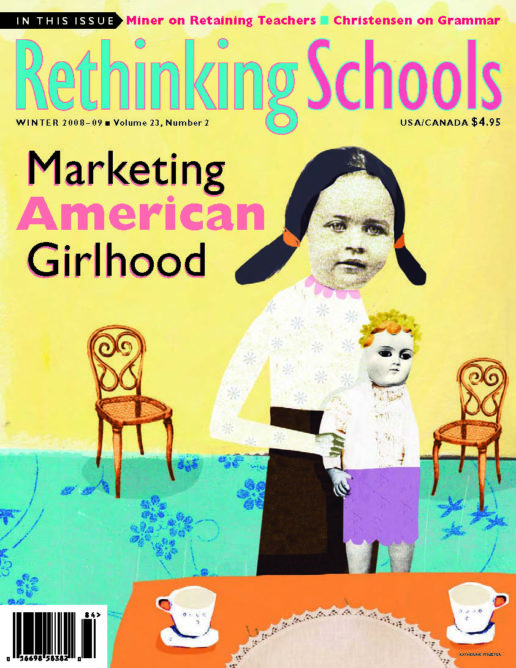Preview of Article:
We Still Aren’t In a Post-Racial Society
Illustrator: David McLimans
Moments after CNN declared Sen. Barack Obama the next president of the United States, I called my parents. I could tell my father was beaming. Through Obama, he could see the future for his grandsons and their peers — a collective sense of inclusion that has eluded the race for so long.
My mother cried when she recited the litany of things they’d lived through: Emmett Till, Selma, four little girls in Birmingham, Schwerner, Goodman, and Chaney, Bloody Sunday, JFK, MLK, RFK, Chicago in ’68, Detroit, Watts, Newark, and Katrina. Then, as folks would say, the spirit hit her.
“Yes, we can,” she yelled. “Yes, we can. Yes, we can. Yes-we-can.”
It was an unforgettable moment.
But after a night’s sleep, I couldn’t help but think that now we’re going to hear, as we did after Obama’s triumph in the Iowa caucuses, the absurd talk about post-racial America.
Exactly how can we be in post-racial America when nearly 40 percent of black children under the age of 5 live at or below the poverty line?

